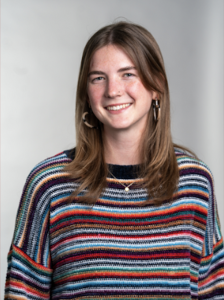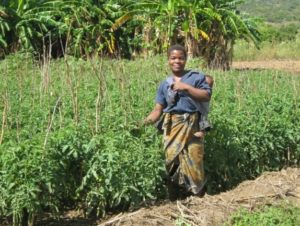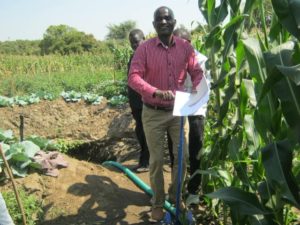On September 22nd, 2025, ELCA World Hunger will officially release our short educational documentary, “Intersections: Justice Ministry with ELCA Partners,” for free on YouTube and Vimeo. You can watch a trailer for the film at the link here. “Intersections” explores stories from three ELCA companion ministries, responding to the overlapping root causes of hunger in the United States and around the world.
This an interview with Mikayla Irle, who was the editing producer of “Intersections,” is an experienced documentary filmmaker. She was the primary creative professional supporting the development of this project.
Thank you for taking time to share more about your work, expertise, and professional story. I’m looking forward to this conversation.
First, tell us a little bit about yourself and your work. How do you understand your work as a documentary producer?

Mikayla Irle (pictured here) is a documentary filmmaker and the producing editor of “Intersections.”
“Producing” can mean a lot of things on a documentary, from managing the shoot to providing funding, but my role was focused on “writing” the story based on the footage we had and putting in the legwork to creatively fill any gaps. So, I watched all the interviews, put them in order to convey the information clearly, and gave it a beginning, middle and end. I also searched online for music and archival footage to help the stories come alive and wrote any text that appears onscreen. Of course, the team at ELCA World Hunger helped me along the way!
I am a freelance editor, who is, weirdly and happily, living on a Christmas tree farm in Washington State. For about a decade, I worked in New York on bigger-budget films, but I have happily transitioned to working more deliberately on documentary stories that excite me. Anyone who’s got a story to tell about how they’re finding solutions to big struggles in our world…that’s what I love to work on!
What is one of the most lasting lessons you learned–either about yourself or the work of the ELCA and its partners–while producing and editing Intersections that you did not know before?
I’m most proud of the scope of this short film! We covered stories from a rural farming community in Cambodia, an urban US city, and several countries in Central America. We touched on the themes of climate change, political and economic history, racial and gender disparity. While each story could have been a documentary unto itself, I think we managed to tell a short version of each and still connect them to the big theme of hunger.
What are some of the challenges you had to overcome while working on Intersections?
What made me most proud of this documentary is also what made it most challenging: the scope of world hunger is huge! The causes of and solutions to hunger in each story were so different, it was challenging to focus each story so it still connected clearly to the mission of ELCA World Hunger’s work. It wasn’t clear when we began how we would actually connect the stories, but we wanted the audience to learn about each place as a unique example and still get educated on the ELCA philosophical framework. Ultimately, our solution was to have Angela [Galbraith], an advocate, explain the framework between stories and use a graphic of the Earth rotating from location to location to transition us between stories.
If folks are looking for a documentary producer or editor, how can they get ahold of you?
The easiest way to contact me is directly through email! You’re also welcome to check out my work at my website.
mikayla.irle@gmail.com
https://mikaylairle.wixsite.com/editingresume
About the Author
Mikayla Irle is a documentary editor and producer working in the Seattle area. She loves working on big stories about people doing their piece to make the world a better place. Her background is in feature and episodic documentaries that have appeared on HBO, AppleTV, independent cinema screens and more.




